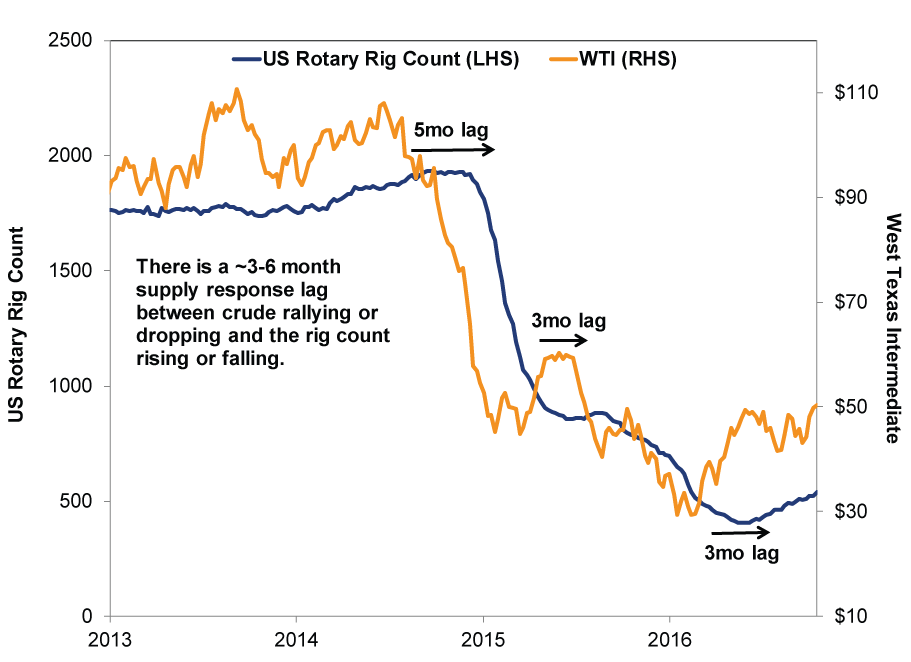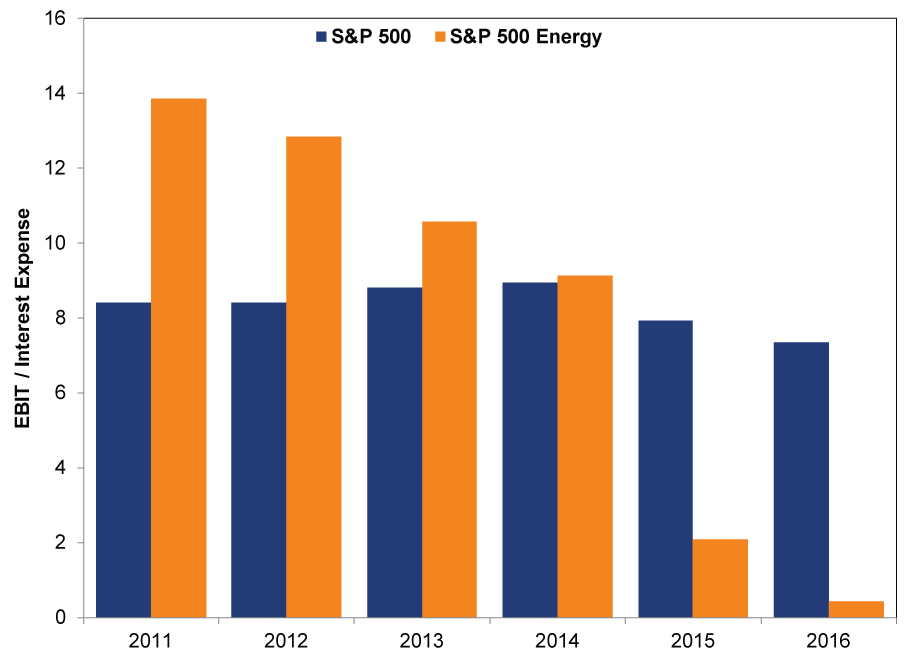Personal Wealth Management / Market Analysis
Energy Still Isn’t a Fit
Searching for opportunities in the Energy sector still seems premature.
With oil up from its most recent low, many see a prime opportunity in Energy stocks. However, despite oil's nascent rebound, the bigger picture hasn't changed. The primary headwind facing Energy is an oil oversupply, which puts downward pressure on prices. Even if prices don't plunge anew, this force still impacts the sector's future profits. For investors, the question isn't, "how much have prices risen recently?" Rather, it's, "are there any meaningful supply constraints that will alleviate pressured profits?" All evidence today suggests there aren't, making it premature to load up on Energy stocks.
Demand growth likely remains steady, as it has since 2012, but supply probably won't abate any time soon. Domestic producers are quick to bring supply back online at the first signs of price strength. As seen in Exhibit 1, US producers have responded to stronger oil prices by putting rigs back to work, with a narrow lag time of only three months. In many shale regions, new wells are profitable with oil at $40 a barrel, according to estimates by ConocoPhillips. Indeed, the abundance of US supplies-accessible at ever-lower costs-led ExxonMobil CEO Rex Tillerson to refer to domestic shale as a source of "enormous spare capacity," which has visibly changed the industry. That quick producer response and abundant supply dampens the likelihood oil prices significantly rise over the next 12-18 months.
Exhibit 1: Rig Count Response to Oil Prices

Source: Baker Hughes, as of 10/19/2016. US rotary rig count completed.
Supply and demand issues lie at the heart of Energy's woes, but they aren't the only minuses. Energy firms also lag other sectors in terms of company quality and balance sheet strength.
One way to measure a company's quality is by profit margin. Unlike Health Care or Technology firms, which have better pricing power thanks to products with high amounts of intellectual property, Energy companies have relatively little ability to raise prices. By and large, they sell a commoditized product, with prices determined in a global market. As a result, Energy firms have the lowest gross profit margins of any sector, which leads to heightened earnings volatility. (Exhibit 2)
Exhibit 2: Gross Margins by MSCI World Sector

Source: FactSet, as of 10/21/2016. From 9/30/2015 - 8/31/2016.
The fall in crude oil over the last few years has taken a toll on Energy company balance sheets, with many now struggling to keep up with interest payments on outstanding debt. While this likely improves now that oil has stabilized, Energy companies are far weaker than non-Energy peers. (Exhibit 3)
Exhibit 3: Interest Coverage Ratios of S&P 500 and S&P 500 Energy Firms

Source: FactSet, as of 10/21/2016.
Absent improving fundamentals, Energy firms continue to face headwinds looking forward. Besides the aforementioned steady US output, global producers continue adding to the overall oil supply glut as well. Even if recent chatter about an OPEC-led production cut comes to fruition-no guarantee-it is unlikely to put a meaningful dent in supply, unless they vastly exceed the scope of cuts discussed recently. The largest integrated global firms are equipped to weather the storm, but this isn't the time to pile into the smaller, lower-quality companies characteristic of the Energy sector.
If you would like to contact the editors responsible for this article, please message MarketMinder directly.
*The content contained in this article represents only the opinions and viewpoints of the Fisher Investments editorial staff.
Get a weekly roundup of our market insights
Sign up for our weekly e-mail newsletter.

You Imagine Your Future. We Help You Get There.
Are you ready to start your journey to a better financial future?

Where Might the Market Go Next?
Confidently tackle the market’s ups and downs with independent research and analysis that tells you where we think stocks are headed—and why.





